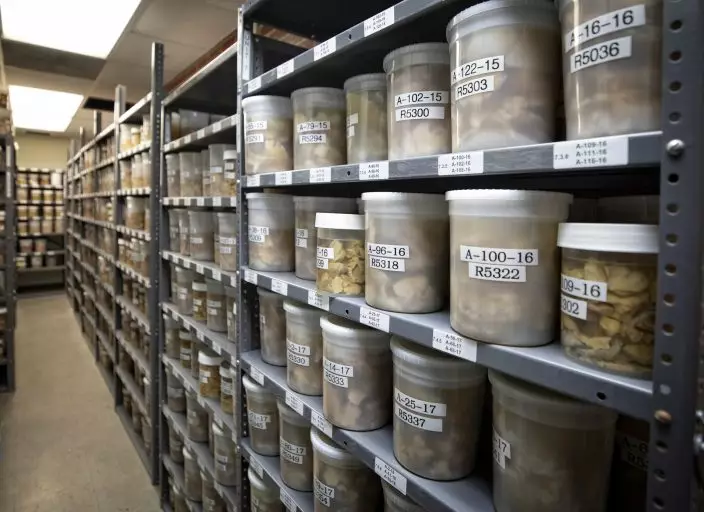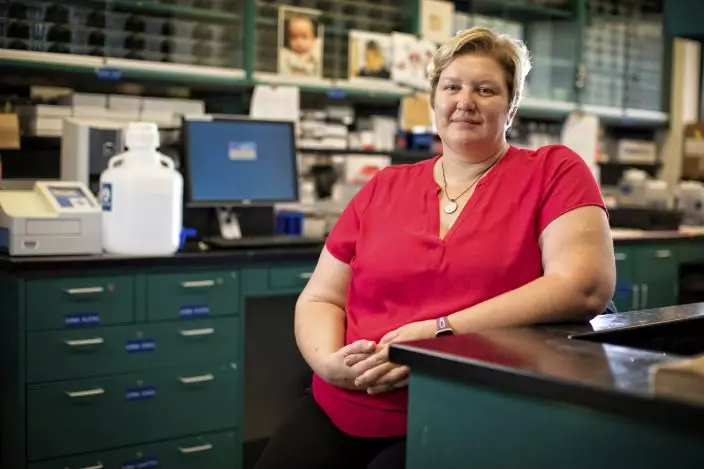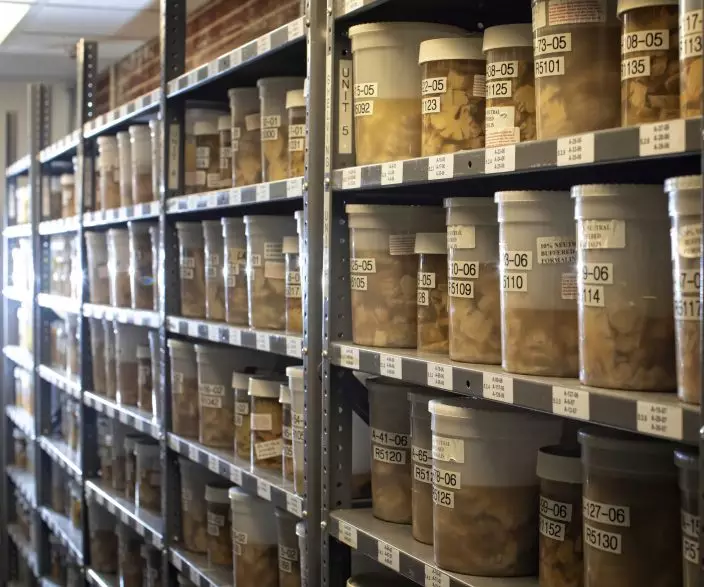Scientists are rethinking Alzheimer's disease in the wake of a string of disappointing drug failures.
For years, the goal was to stop buildup of sticky plaques that are a hallmark of the mind-robbing disease. The drug flops made clear other things are playing a role, too.
Now there's a new focus — diversity — as researchers explore multiple novel ways of attacking a disease too complex for a one-size-fits-all solution.

This Aug. 14, 2019 photo provided by the University of Kentucky shows brain samples in storage at the Sanders-Brown Center on Aging in Lexington, Ky. Once a month, researchers at the University of Kentucky gather to compare donated brains from people who died with dementia. Very rarely do they find one that bears only Alzheimer's trademark plaques and tangles, no other damage. (Mark CornelisonUniversity of Kentucky via AP)
It's not clear if these fresh starts will pan out. But high on the list are ways of targeting immune cells in the brain, fighting inflammation, even asking if simmering infections play a role.

This Aug. 14, 2019 photo provided by the University of Kentucky shows Donna Wilcock, of the Sanders-Brown Center on Aging in her lab in Lexington, Ky. She says that contrary to popular perception, "there are a lot of changes that happen in the aging brain that lead to dementia in addition to plaques and tangles." (Mark CornelisonUniversity of Kentucky via AP)

This Aug. 14, 2019 photo provided by the University of Kentucky shows brain samples in storage at the Sanders-Brown Center on Aging in Lexington, Ky. Once a month, researchers at the University of Kentucky gather to compare donated brains from people who died with dementia. Very rarely do they find one that bears only Alzheimer's trademark plaques and tangles, no other damage. (Mark CornelisonUniversity of Kentucky via AP)


